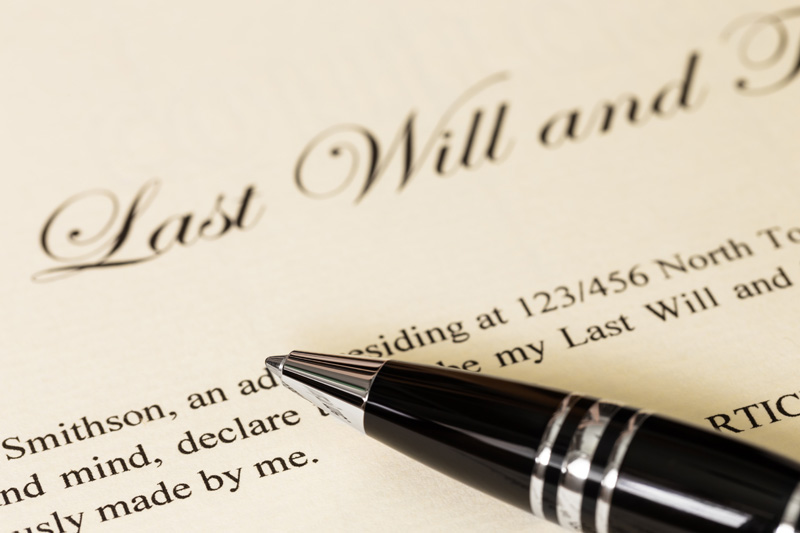Making a Will is one of those things that no-one likes to think about. However, when it comes to it, having a Will can make a huge difference to the f
Making a Will is one of those things that no-one likes to think about. However, when it comes to it, having a Will can make a huge difference to the financial security of the loved ones you leave behind.
According to a survey carried out by the charity Will Aid, only 47% of adults in the UK have made a Will, meaning approx. 27 million don’t have one. Among those who are married or in a civil partnership, the figure is 44%, while nearly 70% of cohabiting couples have no Will.
So, why the reluctance to make a Will?
Much of the problem centres around some basic false assumptions that have been circulating in popular belief for far too long. Let’s take a closer look at some of the myths surrounding Wills, and why it’s so important that you contact an established and professional lawyer such as George Ide Solicitors to make one.
Wills Are For Old People To Worry About
Not having a Will can leave you vulnerable to the cruelties of fate. Maybe you believe that only elderly people need to worry about drawing up a Will? Well, that’s a pretty confident assumption of your own longevity. None of us know what’s round the corner and making a Will is simply a tool to plan ahead for the inevitable, whenever it may arrive. Look at it as a way to give you the peace of mind of knowing that those close to you will be taken care of when you’re no longer able to look after them.
My Family Will Sort It All Out When I’m Gone
The simple fact is that if you die without a Will (‘intestate’), your estate will be distributed by the Government and your family may not have much say in the matter. Family disputes are commonplace – they can go on for years and cost a lot in legal fees. Also bear in mind that your Will not only covers your finances and belongings, but things like legal authority over your children too. Having a Will put in place can avoid the additional trauma this would place on your family.

My Husband/Wife Will Get Everything Anyway
Without a Will, your spouse or civil partner won’t automatically inherit everything. The law on intestacy is complex. If you have children, your husband/wife will receive your personal belongings and the first £250,000 and a life interest in the rest of the estate, with the remainder shared equally between the children. If you don’t have children, your married or civil partner will receive your personal possessions and the first £450,000. Thereafter, the rest is halved between the spouse/civil partner and the rest of the family.
My Common Law Husband/Wife Will Get Everything Automatically
Unfortunately, common law marriages are not legally recognised in English law; statutory rights apply only to married couples. If you’ve been cohabiting for more than 6 years but are not married, your ‘common law’ spouse will have no automatic right to your estate. If an unmarried person dies intestate, the estate would pass to their children. If there are no children, the estate will be divided between family members or, in the absence of family, the state.
Marriage/Remarriage Will Not Affect My Will
Again, this is just not true. On the contrary, when you get married or remarried, any previous Wills you have written become invalid, unless you insert a specific clause ‘in contemplation of marriage’. While your Will does not automatically become invalidated upon divorce, any inheritance would be paid out as if your ex-spouse were dead, and go straight to the other beneficiaries.
I Can Amend My Own Will At Any Time
Once you have made a Will and signed it, you cannot simply edit it. In order to make amendments to your Will, you need to draw up a codicil, a separate legal document. However, if you are planning to make far reaching alterations to your Will, it may be easier to have a new Will drawn up.
I Can Cut Family Members Out Of My Will
Writing family members out of your Will is not that easy. Under the Inheritance (Provision for Families and Dependents) Act, your Will can be contested by a family member who expects to receive an inheritance from you, on the basis that they are deprived of the perceived entitlement.
My debts and Any Contracts Will Come To An End With My Death
This is simply not true. Any debts you leave behind will need to be paid from your estate – regardless of whether it’s a credit card bill, car finance or a mortgage – before the rest of the estate can be distributed. The same goes for any contract you agreed prior to your death. If there isn’t enough money to settle any debts, the creditors will take what they can and write off the rest. If your executors pay out the estate and tell the creditors that there are no funds to settle the outstanding debts, they can be held personally liable for the debt.
I Already Have a Living Will
A Living Will, or Lasting Power of Attorney, is only valid while the person is alive. It is a useful document drawn up by a solicitor that appoints an ‘Attorney’, a trusted person who can make important decisions on your behalf if you lose physical or mental capacity. However, a Living Will ceases to be valid upon your death.
A Last Will and Testament, by contrast, is a legal document that only ever comes into force once the person has passed away. If you wanted your ‘Attorney’ to act as the executor of your estate, s/he would have to be appointed as Executor in your Will.
Making a Will Is Complicated and Expensive
Depending on the complexity of your personal affairs and the bequests you wish to make, drawing up a Will may or may not take a long time. Certainly, using an experienced solicitor to help you construct your Will in the correct way will cost more than going the DIY route. But then again, isn’t it worth paying for professional advice to get your affairs in order, giving you full peace of mind that your wishes will be carried out without difficulty, when you’re no longer around?




















































































































COMMENTS